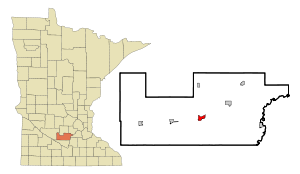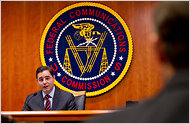
Image via Wikipedia
Sibley County, MN understands the benefits of a municipal broadband network to the community, and they have formulated a good plan to build one. The incumbent telecom provider is putting up a good fight, as to be expected, but their premise is shaky. Frontier Communications wrote a letter to the county commissioners protesting the county’s plans, and Winthrop City Administrator submitted an excellent rebuttal.
There are now many examples in the United States alone for successful community networks. Sibley County and other localities are taking advantage of these success stories to insure the success of their own network build-outs. Cash strapped incumbent service providers should take advantage of these last-mile networks to introduce advanced broadband services through these networks instead of impeding them. The biggest challenge municipalities face is financing. The municipal bond market is currently quite soft. Potential investors in these networks would welcome the participation by a large service provider to help guarantee a positive ROI.
Frontier Communications (NYSE: FTR) is taking sides on a fiber-to-the-farm initiative in Sibley County, Minn., and it isn’t the side of the consumer. Frontier doesn’t see a fiber buildout to rural communities as feasible, arguing in a letter to county commissioners that they can provide the same level of service as fiber via their DSL service.
Continue reading










